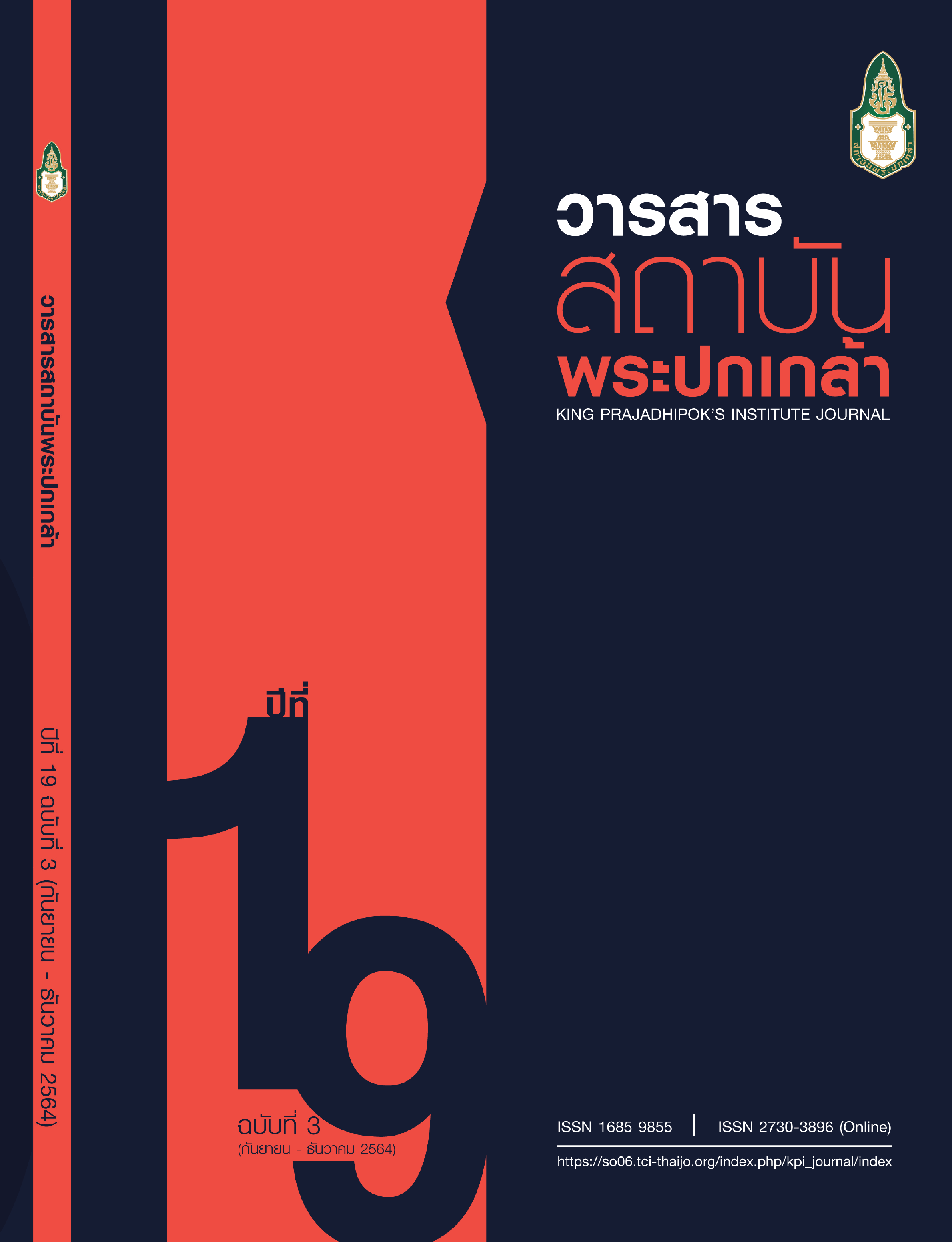Turning Back, Looking Forward at Decentralization of the Thai State: A Dim Light at the End of the Tunnel
Main Article Content
Abstract
Decentralization is an issue that has been widely studied and is considered important because it is a key mechanism for developing a democratic system that promotes public participation in governance. In the past, the main concept of decentralization has been a top-down model, but if you consider it from a different perspective, decentralization can be a collaborative and deliberative process in which the government and the people cooperate in the management of the mission like equal shareholders. The objective of this article is to analyze decentralization of the Thai state up to the present and to suggest another paradigm of decentralization that would benefit the people and local communities. In the Thai political system, the bureaucracy has wielded the most power ever since the change from absolute monarchy in 1932 up until the present. There have been brief periods when democracy has prevailed, but they have always ended in another coup d’etat, so that the political institutions of a democratic system and true decentralization have never been institutionalized. Movements towards decentralization have followed the top-down model and have been tightly controlled by the bureaucracy. In the future, the decentralization process should change from the top-down model to a model of collaboration and deliberation in which civil society and people in communities have more power.
Article Details

This work is licensed under a Creative Commons Attribution-NonCommercial-NoDerivatives 4.0 International License.
@ 2020 King Prajadhipok's Institute The Government Complex Commemorating All Right Reserved.


